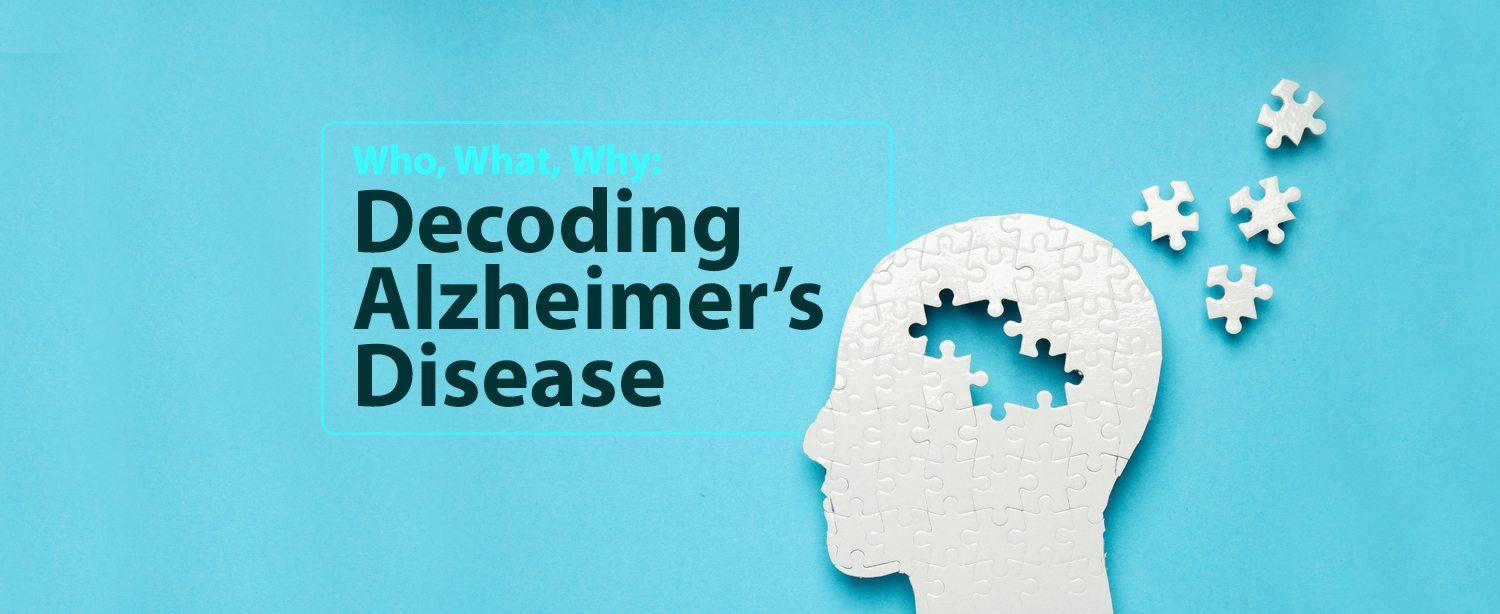Alzheimer’s disease is a progressive neurological disorder that robs people of their memory and cognitive functions. India has more than 40 lakh people living with dementia. Alzheimer’s disease is the most common type of dementia, affecting many Indians, especially the elderly. Understanding Alzheimer’s disease is the first step toward managing it effectively. While anyone can be at risk, knowing the factors that contribute to the disease can help in taking preventive measures. With the right care and support, it is possible to maintain a fulfilling life even with Alzheimer’s disease.
Table of Contents
Who is at Risk of Alzheimer’s Disease?
Alzheimer’s disease primarily affects older adults, with most patients being 65 years or older. However, early-onset Alzheimer’s can occur in individuals as young as their 30s or 40s. Several factors increase the risk:
- Genetics
A family history of Alzheimer’s disease significantly increases the risk. Specific genes like the APOE ε4 allele are linked to a higher likelihood of developing the condition - Age
The risk doubles every five years after age 65 - Gender
Women are more likely to develop Alzheimer’s, partially due to their longer life expectancy - Lifestyle and Heart Health
Obesity, smoking, high blood pressure, and diabetes can all elevate the risk - Head Injuries
Serious head trauma may increase the likelihood of developing Alzheimer’s disease
What Happens in Alzheimer’s Disease?
Alzheimer’s disease is a progressive brain disorder that leads to a gradual decline in cognitive abilities and social skills. It is marked by the accumulation of specific proteins in the brain, which causes brain cells to shrink and eventually die. This process disrupts the communication between neurons, leading to a loss of brain function. As the most common cause of dementia, Alzheimer’s significantly impairs memory, thinking, behavior, and the ability to perform daily activities.
Why does it Happen?
The exact cause of Alzheimer’s is still not fully understood, but it’s believed to be a combination of genetic, lifestyle, and environmental factors that affect the brain over time. The buildup of amyloid plaques and tau tangles disrupts the communication between nerve cells and triggers inflammation, eventually leading to brain cell death.
Healthy Living Tips to Manage Alzheimer’s Disease
While there is no cure for Alzheimer’s, certain lifestyle changes can help manage the symptoms and improve the quality of life:
- Diet
A balanced diet rich in fruits, vegetables, omega-3 fatty acids, and low in saturated fats can support brain health. The Mediterranean diet, known for its emphasis on whole grains, fish, and plant-based foods, has been associated with a reduced risk of cognitive decline. - Physical Activity
Regular exercise, including aerobic activities like walking or swimming, can enhance blood flow to the brain and improve overall cardiovascular health. Aim for at least 150 minutes of moderate-intensity exercise per week. - Cognitive Training
Activities that stimulate the brain, such as puzzles, memory games, and learning new skills or languages, can enhance cognitive reserve and delay the onset of dementia symptoms. - Social Interaction
Engaging regularly with friends and family can improve mood and maintain mental functioning. Social activities that combine physical and mental elements, such as dance classes or group exercises, are particularly beneficial. - Sleep
Ensuring adequate sleep is vital, as sleep disturbances can contribute to cognitive decline. Aim for 7-8 hours of quality sleep per night and maintain a regular sleep schedule. - Stress Management
Chronic stress can exacerbate cognitive decline and Alzheimer’s symptoms. Techniques such as meditation, deep breathing exercises, and yoga can reduce stress and promote a sense of well-being. - Avoid Smoking and Limit Alcohol Consumption
Smoking and excessive alcohol consumption can increase the risk of cognitive decline. Quitting smoking and limiting alcohol intake can significantly benefit brain health. - Regular Health Check-ups
Managing underlying health conditions like diabetes, hypertension, and high cholesterol is crucial as these conditions can increase the risk of Alzheimer’s disease. Regular check-ups and following medical advice can keep these risk factors under control.
Incorporating these tips into daily life can help manage symptoms of Alzheimer’s and improve overall quality of life, potentially slowing the progression of the disease.
Alzheimer’s Care at Kokilaben Dhirubhai Ambani Hospital
If you or a loved one are facing challenges related to Alzheimer’s, it’s crucial to seek expert care. By staying informed and proactive, we can tackle Alzheimer’s disease with the best tools and knowledge available, aiming for the best possible outcomes for patients and their families. Consult Neuro specialists at our Centre for Neurosciences to discuss the best strategies for management and care of this condition. Please find below the link to our website for more details: https://www.kokilabenhospital.com/departments/centresofexcellence/centrefor_neurosciences/alzheimer_sdisease.html


